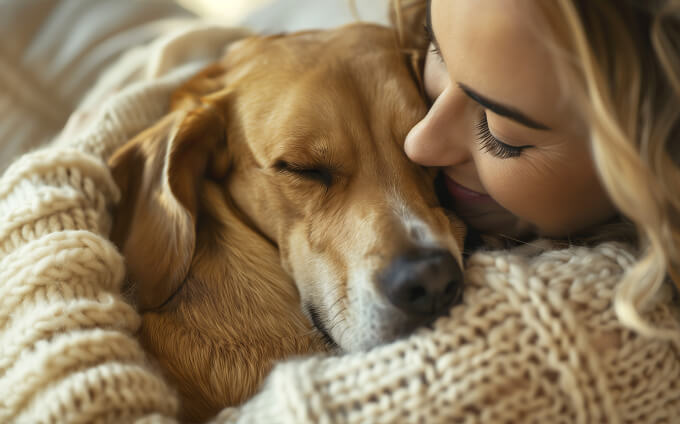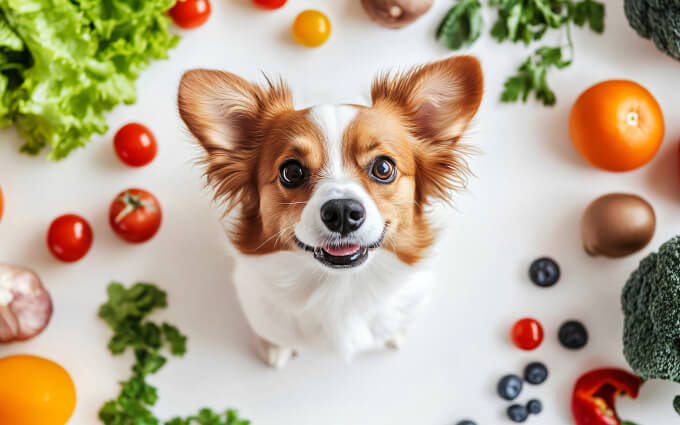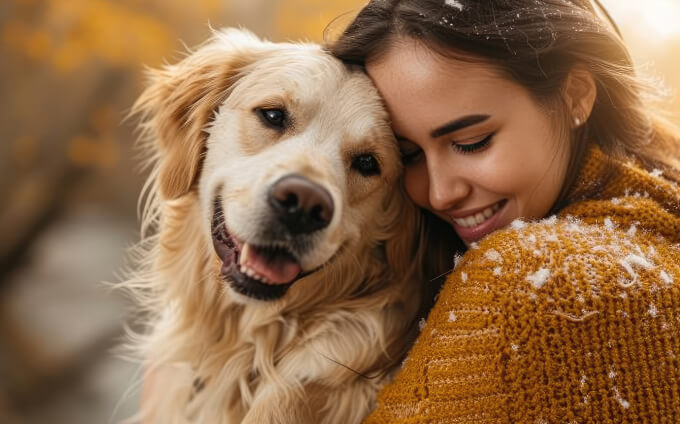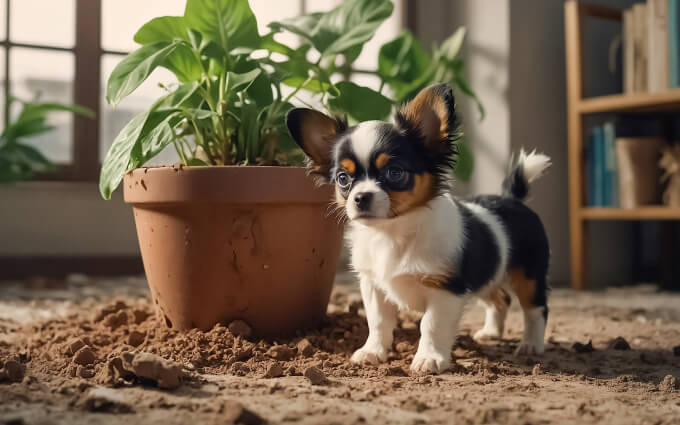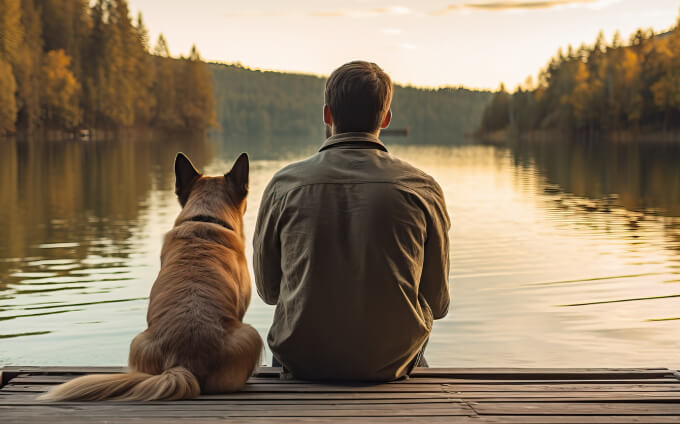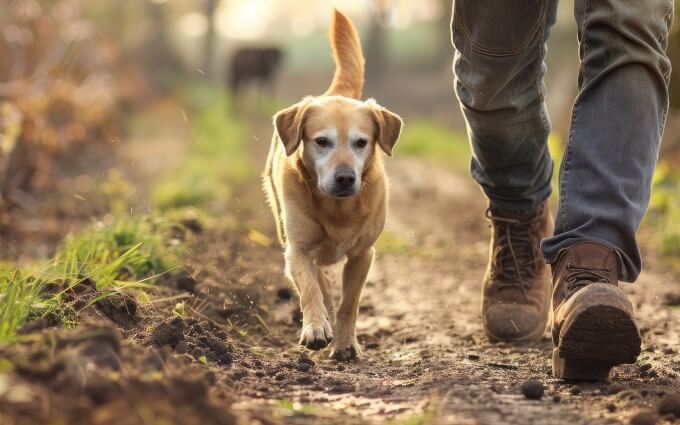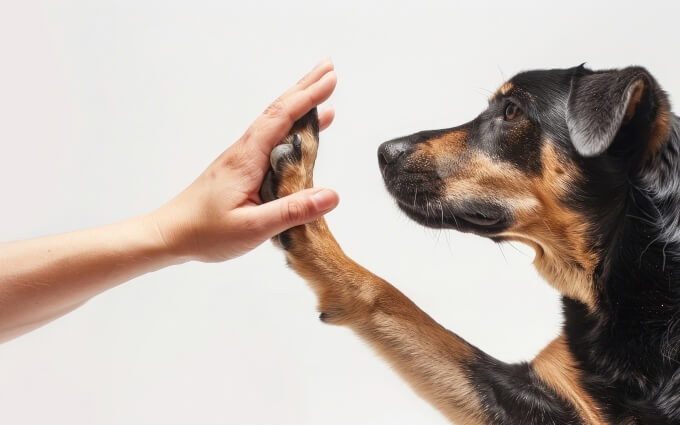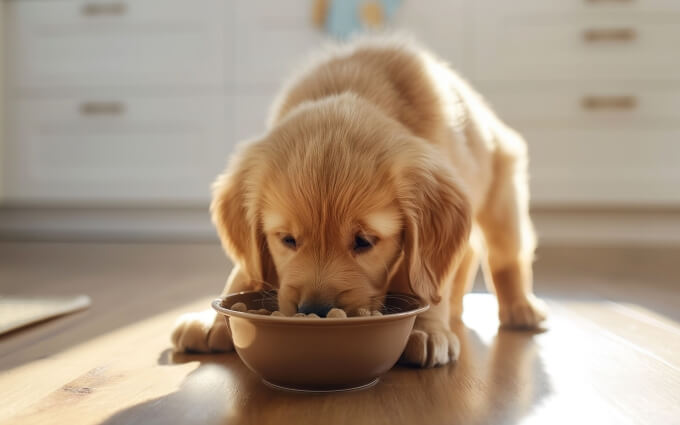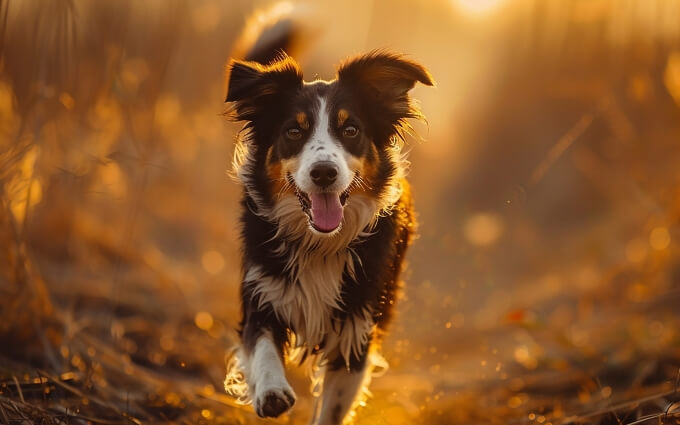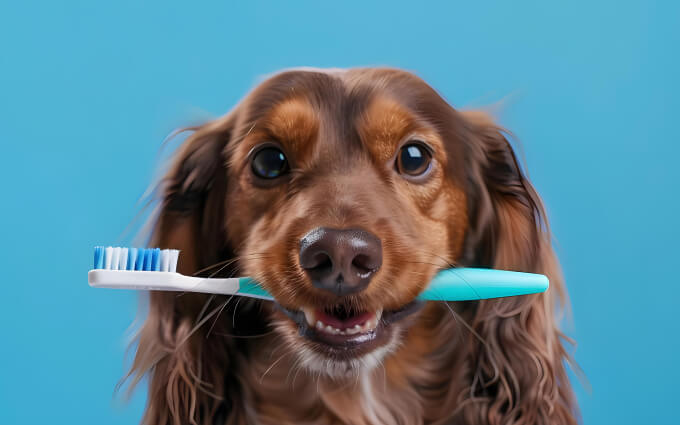- Home
- Puppies & Young dogs
- How to Potty Train your Puppy
How to Potty Train your Puppy
Housetraining your puppy can be a challenging but highly rewarding process. With the right techniques and patience, you can quickly get your puppy to understand where to go

- 38
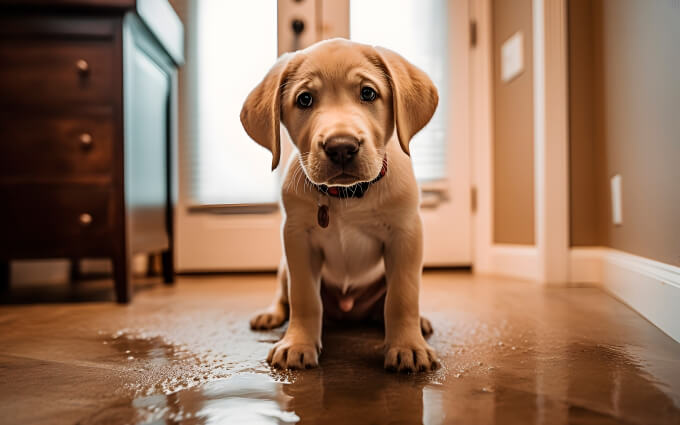
The importance of housetraining
House training is one of the first and most important challenges you'll face as a new dog owner. A clean puppy not only means a cleaner home, but also a happier and more well-adjusted dog. It takes patience, consistency and an understanding of your puppy's needs. Let's dive into how you can best train your puppy to be housetrained.
Understand your puppy's needs
Before you can start housetraining, it's important to understand your puppy's natural needs and habits.
- Puppies have small bladders and often need to urinate, especially after sleeping, eating or playing.
- Most puppies can hold it for about an hour for every month they are old, so a three-month-old puppy can typically hold it for about three hours.
- Your puppy will often give signs that they need to go to the toilet, like sniffing around or walking in circles.
Step-by-step guide to toilet training
Now that you have a basic understanding of your puppy's needs, we can get started with the actual training. Here's a step-by-step guide:
Step 1: Establish a routine
A regular daily routine is essential for successful housetraining. Take your puppy out at the same times every day, such as after sleep, meals and play.
Step 2: Use a command
Choose a command, like "go pee", and use it consistently when you take your puppy out to relieve themselves. This will help your puppy understand what you expect.
Step 3: Choose a specific toilet area
Take your puppy to the same place every time to relieve themselves. This helps them understand that this area is the right place to go to the toilet.
Step 4: Praise and reward
When your puppy relieves themselves outside, praise them and give a small treat as a reward. Positive reinforcement is key to teaching your puppy good habits.
Step 5: Monitor and limit indoor freedom
Until your puppy is completely housebroken, monitor them closely when they are indoors. Limit their access to the entire house by using puppy fencing or keeping them in a confined area.
Managing accidents
Accidents will happen and it's important to handle them correctly to avoid making the problem worse.
- Clean the area thoroughly with an enzyme-based cleaner to completely remove the smell. This will prevent your puppy from being attracted to the same spot again.
- Avoid punishment: Don't scold your puppy for accidents. Punishment can create fear and confusion, which can make housetraining more difficult.
- Learn from accidents: Consider what went wrong and adjust your training plan to avoid similar situations in the future.
When to seek help from a professional
Sometimes housetraining can be particularly challenging and it may be necessary to seek help from a professional dog trainer. This may be the case if:
- Your puppy has chronic accidents despite your best efforts.
- Your puppy shows signs of anxiety or fear around toilet training.
- You feel frustrated or overwhelmed by the training process.
Benefits of professional help
- Expertise: A professional trainer has experience and knowledge of different training techniques.
- Personal guidance: You get specific feedback and strategies to suit your puppy's unique needs and behavior.
- Support: Professional help can give you the support and encouragement you need during the training process.
Frequently Asked Questions about potty training a puppy
How do I potty train my puppy?
Take your puppy outside frequently, especially after meals, naps, and playtime, and reward them when they go potty outside.
How long does it take to potty train a puppy?
Most puppies take a few months to become fully potty trained, but consistency and patience are key.
How often should I take my puppy outside?
Puppies should go out every 2–3 hours and always after eating, drinking, playing, or sleeping.
What should I do if my puppy has an accident indoors?
Stay calm, clean the area thoroughly to remove odor, and continue reinforcing outdoor potty habits.
Can all puppies be potty trained?
Yes, with consistent routines and positive reinforcement, all puppies can learn to be potty trained.
Conclusion: Enjoy the journey with your puppy
Pettiness training can be a challenge, but it's also an opportunity to strengthen the bond with your puppy. With patience, consistency and positive reinforcement, your puppy will learn to be housebroken and you'll enjoy a clean and harmonious home together. Remember to celebrate the small victories along the way and be patient with both yourself and your puppy. Good luck!
- 38
 Marcin Solgaard
Marcin Solgaard
Marcin is a true dog enthusiast! He is always seen with his 9-year-old boxer by his side. Marcin believes that dogs thrive on love, fun and positive experiences. On their daily adventures, people often stop Marcin to ask how his boxer is so happy and well-behaved. He happily shares tips on dog behavior and fun activities to create a happy and harmonious life with your dog.
-
Dog Behavior
 Does My Dog Know I Care About It?
Does My Dog Know I Care About It?Discover the ways your dog shows it knows you care and how you can reinforce that loving bond through simple actions and daily interactions.
 Cassandra DalgaardAug 05, 202444
Cassandra DalgaardAug 05, 202444 -
Food & Nutrition
 The Best Foods to Boost Your Dog's Immune System
The Best Foods to Boost Your Dog's Immune SystemTo keep your dog healthy and resilient, fueling their immune system with the right foods is key. In this post, we'll cover the top nutrient-packed foods that can give your dog's immune system the support it needs, helping them fend off illness and stay energetic.
 Marcin SolgaardOct 04, 20249
Marcin SolgaardOct 04, 20249 -
Dog health
 Which Emotions Do Dogs Actually Experience? Understanding Your Dog's Emotions
Which Emotions Do Dogs Actually Experience? Understanding Your Dog's EmotionsDogs experience a variety of basic emotions similar to those of a young child. Learn about the emotions your dog truly feels, how they express them, and what it means for your relationship.
 Cassandra DalgaardJul 30, 202478
Cassandra DalgaardJul 30, 202478 -
Puppies & Young dogs
 How to Puppy-Proof Your Home: A Complete Guide
How to Puppy-Proof Your Home: A Complete GuideBringing a new puppy home is thrilling, but keeping them safe means some serious puppy-proofing. This guide covers everything from securing hazardous items to creating a puppy-friendly zone, making your home a safe haven for your curious new companion.
 Michelle TorringOct 10, 202412
Michelle TorringOct 10, 202412 -
Tips & Tricks
 Are You Ready for Life with a Dog? Everything You Need to Know
Are You Ready for Life with a Dog? Everything You Need to KnowThis guide helps you determine if you're ready for a dog by exploring the responsibilities, financial requirements, and lifestyle changes necessary for successful dog ownership.
 Marcin SolgaardJul 31, 202433
Marcin SolgaardJul 31, 202433 -
Tips & Tricks
 How to Train Your Dog to Walk Off-Leash
How to Train Your Dog to Walk Off-LeashThis guide will walk you through everything you need to know, from essential commands to mastering off-leash walks even in distracting environments
 Marcin SolgaardJul 02, 202451
Marcin SolgaardJul 02, 202451 -
Tips & Tricks
 How to Train Your Dog to Give Paw
How to Train Your Dog to Give PawTeaching your dog to give paw is a fun and rewarding experience that strengthens your bond. This guide walks you through the process with tips, tricks, and plenty of paw-sitive reinforcement.
 Marcin SolgaardApr 11, 202441
Marcin SolgaardApr 11, 202441 -
Food & Nutrition
 How to Choose the Right Diet for Your Allergic Dog
How to Choose the Right Diet for Your Allergic DogFind out how to select the perfect diet for your dog with allergies. Learn about elimination diets, hypoallergenic foods, and the best ingredients to keep your furry friend healthy and happy.
 Marcin SolgaardJun 09, 202427
Marcin SolgaardJun 09, 202427 -
Tips & Tricks
 How to Teach Your Dog to Come When Called
How to Teach Your Dog to Come When CalledThis guide walks you through the process, from selecting the right command to dealing with distractions, ensuring a strong recall every time.
 Marcin SolgaardJul 10, 202448
Marcin SolgaardJul 10, 202448 -
Dog health
 Essential Tips for Caring for Your Dog's Teeth and Gums
Essential Tips for Caring for Your Dog's Teeth and GumsMaintaining your dog's dental health is crucial for their overall well-being. This guide covers various methods to care for your dog's teeth and gums, ensuring they stay healthy and happy.
 Cassandra DalgaardAug 19, 202436
Cassandra DalgaardAug 19, 202436

